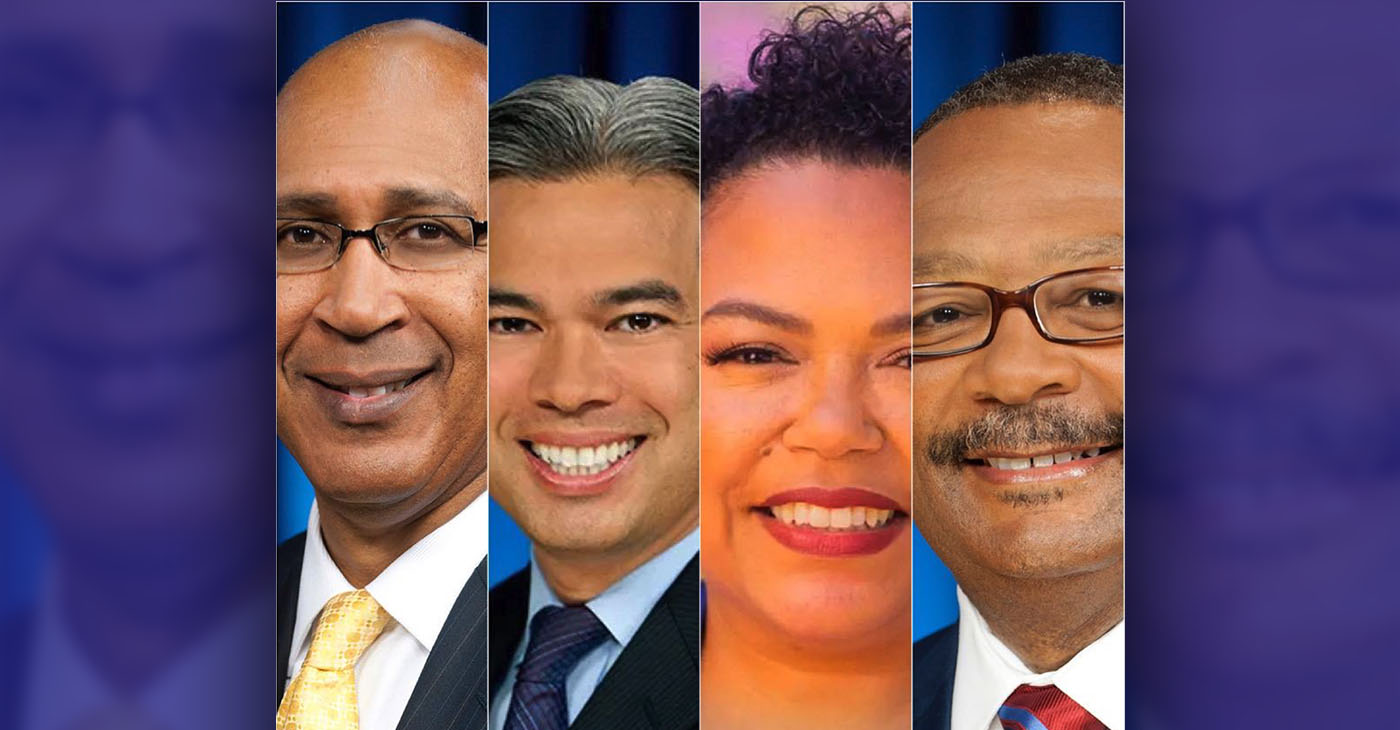Antonio Ray Harvey
California Black Media Political Briefs
Last Saturday, Rep. Barbara Lee held her first U.S. Senate campaign rally at Laney College in Oakland. “We fight for freedom, for dignity, for justice, and, together, we win,” said Lee to a cheering crowd of supporters gathered at the Alameda County community college. “That’s why I’m running for the United States Senate,” continued Lee, who is the highest-ranking African American woman in the U.S. Congress and the only African American so far in the 2024 California senatorial race.

Antonio Ray Harvey
$96 Million Allocated So Far to Black-Owned Firms as High-Speed Rail Project Expands Jobs, Boost Local Economies
Sen. Lola Smallwood-Cuevas (D-Los Angeles), a member of the California Legislative Black Caucus (CLBC) and Chair of the Senate Committee on Labor, Public Employment and Retirement, says the rail project “is exactly the kind of investment” California needs.

Activism
Sacramento: Lawmakers Hear From Health Advocates on “State of Black Maternal Health”
Participants highlighted several past and current bills going through the state Legislature that focus on improving maternal health equity. The proposals address systemic inequities to improve the healthcare experiences of Black women during pregnancy, labor, and postpartum.

Antonio Ray Harvey
Air Quality Board Rejects Two Rules Written to Ban Gas Water Heaters and Furnaces
The proposal would have affected 17 million residents in Southern California, requiring businesses, homeowners, and renters to convert to electric units. “We’ve gone through six months, and we’ve made a decision today,” said SCAQMD board member Carlos Rodriguez. “It’s time to move forward with what’s next on our policy agenda.”
-

 Activism4 weeks ago
Activism4 weeks agoDesmond Gumbs — Visionary Founder, Mentor, and Builder of Opportunity
-

 Activism4 weeks ago
Activism4 weeks agoFamilies Across the U.S. Are Facing an ‘Affordability Crisis,’ Says United Way Bay Area
-

 Alameda County4 weeks ago
Alameda County4 weeks agoOakland Council Expands Citywide Security Cameras Despite Major Opposition
-

 Activism4 weeks ago
Activism4 weeks agoBlack Arts Movement Business District Named New Cultural District in California
-

 Alameda County4 weeks ago
Alameda County4 weeks agoBling It On: Holiday Lights Brighten Dark Nights All Around the Bay
-

 Activism4 weeks ago
Activism4 weeks agoLu Lu’s House is Not Just Toying Around with the Community
-

 Activism4 weeks ago
Activism4 weeks agoOakland Post: Week of December 17 – 23, 2025
-

 Activism3 weeks ago
Activism3 weeks agoFirst 5 Alameda County Distributes Over $8 Million in First Wave of Critical Relief Funds for Historically Underpaid Caregivers











































